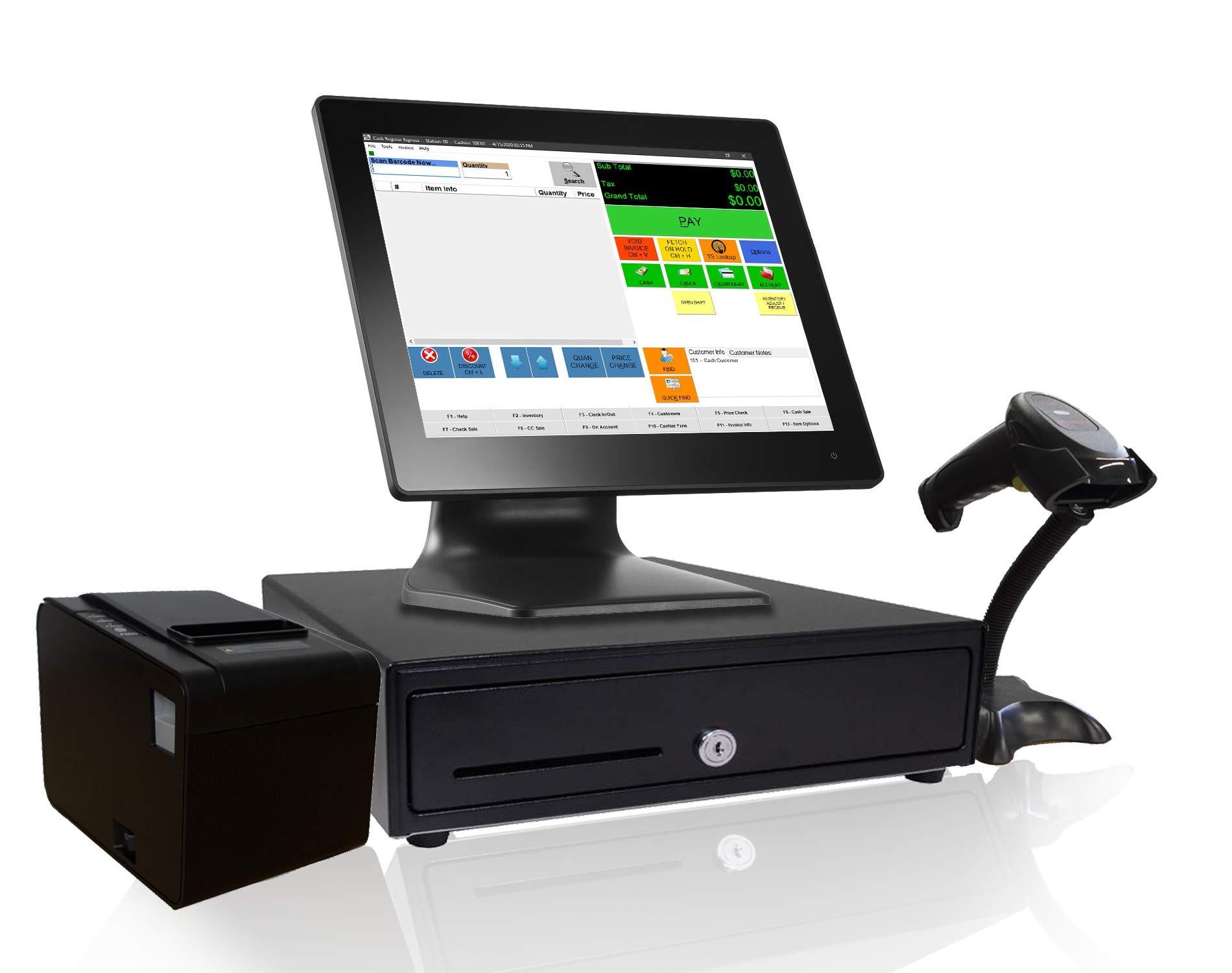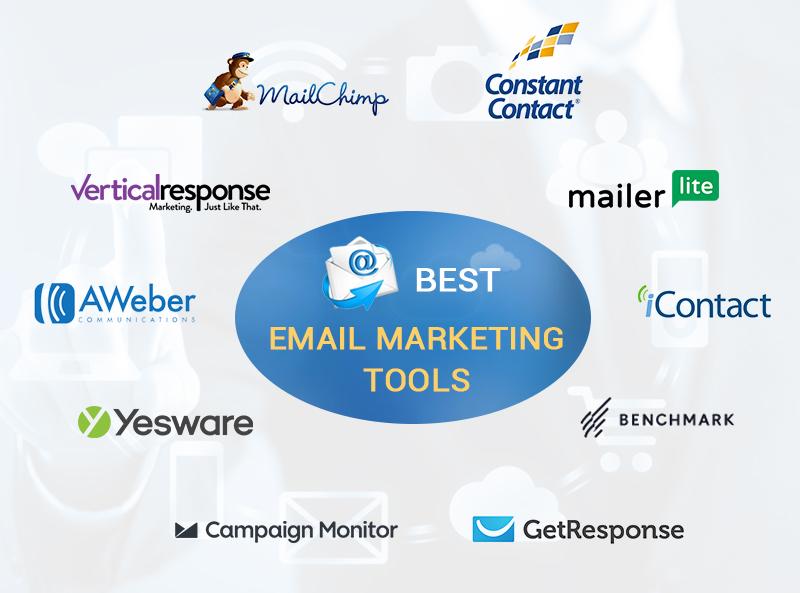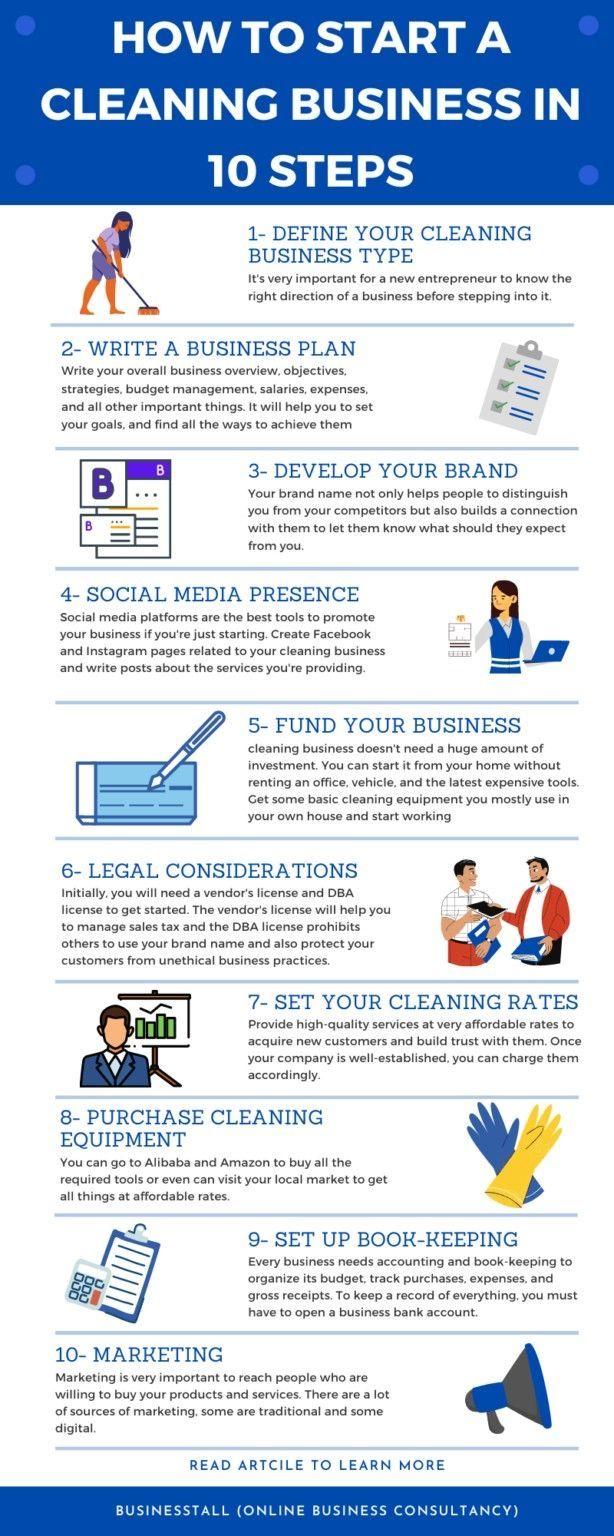
Are you ready to turn your passion for tidiness into a thriving business? Starting a cleaning business is more than just a way to earn extra cash; it’s an opportunity to create a flexible and fulfilling career on your own terms. With the right approach, you can make your cleaning venture not just profitable, but profitable fast! In today’s article, we’ll walk you through the essential steps to kick off your cleaning business, from finding your niche and attracting clients to streamlining your operations for maximum efficiency. Whether you’re looking to supplement your income or launch a full-fledged enterprise, the cleaning industry has immense potential. So, grab your cleaning supplies, and let’s dive into the exciting world of entrepreneurship!
Understanding the Cleaning Industry Landscape
Venturing into the cleaning business offers a unique opportunity to tap into a growing market with low initial investment. The cleaning industry is vast and diverse, encompassing various niches ranging from residential cleaning to specialized services like carpet cleaning or window washing. Understanding the dynamics of this landscape can significantly enhance your chances of success.
Market Segmentation
One of the first steps in navigating this industry is to identify your target market. Consider the following segments:
- Residential Cleaning: Focuses on individual homes and apartments, offering services like general cleaning, deep cleaning, and move-in/move-out cleaning.
- Commercial Cleaning: Includes offices, retail spaces, and industrial sites, often requiring contract agreements for ongoing services.
- Specialized Services: Offers niche markets such as carpet cleaning, pressure washing, and janitorial services.
- Eco-Friendly Cleaning: A growing segment that caters to environmentally conscious consumers, using green products and sustainable practices.
Competitive Analysis
Analyzing your competition is crucial for positioning your business. Assess local cleaning companies in your desired market, considering factors such as:
- Service offerings
- Pricing strategies
- Customer reviews and satisfaction
- Marketing tactics
Utilize this information to differentiate your services, whether through superior customer service, unique offerings, or competitive pricing.
Industry Trends
Staying informed about emerging trends can give you an edge. Some key trends to watch include:
- Increased demand for eco-friendly cleaning services.
- Technological advancements like online booking systems and automated cleaning equipment.
- Health and safety emphasis, especially in commercial spaces, due to recent global events.
By aligning your services with these trends, you can attract more clients and establish a reputable brand.
Cost Structure and Pricing
Understanding the cost structure is vital for profitability. Consider the following expenses:
| Expense Category | Estimated Monthly Cost |
|---|---|
| Supplies and Equipment | $100 – $500 |
| Marketing and Advertising | $50 – $300 |
| Insurance | $50 – $200 |
| Transportation | $100 – $300 |
| Labor Costs | $500 – $2000 (depending on staff) |
Pricing your services appropriately while covering these costs is essential to create a viable business. Research competitor pricing and adjust your rates to ensure competitiveness while maintaining profitability.
Building a Client Base
Effective marketing strategies are pivotal in attracting customers. Consider implementing:
- Online Presence: Create a professional website and utilize social media platforms for visibility.
- Networking: Engage with local businesses and community events to establish connections.
- Referral Programs: Encourage satisfied clients to refer others by offering incentives.
With the right approach, you can build a loyal client base that ensures steady revenue.
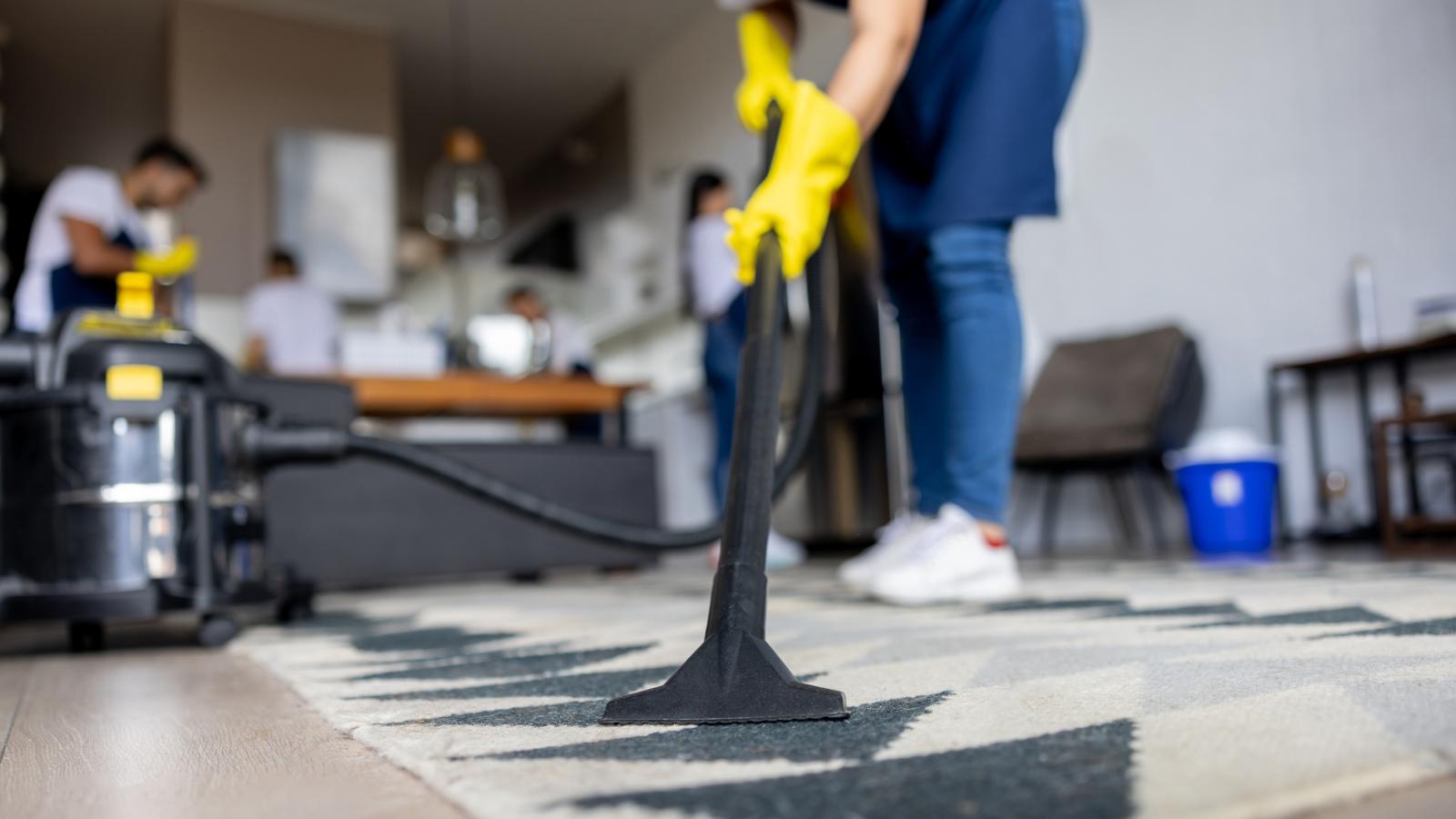
Identifying Your Niche in the Cleaning Business
Finding the right niche in the cleaning business can be the key to your success. With many cleaning services out there, it’s essential to identify what sets you apart. Start by considering your interests, strengths, and market demand. This will help you carve a unique path that resonates with both you and your potential customers.
Begin by assessing the various types of cleaning services available. Some popular niches include:
- Residential Cleaning: Regular house cleaning, deep cleans, or move-in/move-out services.
- Commercial Cleaning: Office cleaning, industrial facilities, or retail spaces.
- Specialty Cleaning: Carpet cleaning, window washing, or post-construction cleanup.
- Eco-Friendly Cleaning: Using sustainable products to attract environmentally conscious clients.
- Holiday or Event Cleaning: Pre- and post-event cleaning services for special occasions.
Next, conduct thorough market research in your area. Analyze your competition and identify gaps in the market. Ask yourself:
- What services are most frequently requested?
- Are there clients looking for specialized cleaning options?
- What are the pricing strategies of your competitors?
Once you’ve gathered this information, use it to define your unique selling proposition (USP). Your USP should clearly communicate why a customer should choose your services over others. For instance, if you focus on eco-friendly options, highlight the health benefits and environmental impact of your services in your marketing materials.
Consider also your target audience. Different demographics have varying cleaning needs. Here’s a simple breakdown:
| Demographic | Cleaning Needs |
|---|---|
| Busy Professionals | Regular cleaning services with flexible scheduling. |
| Families | Deep cleaning and child-safe products. |
| Seniors | Assistance with light cleaning and organizing. |
| Businesses | Consistent office cleaning and specialized services. |
After identifying your niche and target audience, develop a strong brand identity that reflects your focus. This includes creating a memorable logo, setting up a professional website, and utilizing social media platforms effectively. Tailor your messaging to resonate with your ideal clients, emphasizing your expertise in your chosen niche.
be open to adapting your offerings as you grow. Monitor customer feedback and market trends to ensure your business remains relevant. By staying attuned to the needs of your clients, you can expand your services and continue to thrive in the cleaning industry.
Crafting a Solid Business Plan for Success
Creating a robust business plan is an essential step in establishing a successful cleaning business. A well-thought-out plan not only guides your operations but also provides potential investors and partners with insights into your vision. Start by defining your mission statement, which encapsulates your cleaning business’s purpose and values. Consider questions like:
- What unique services will you offer?
- Who is your target market?
- What problem are you solving for your customers?
Next, conduct thorough market research to understand the competitive landscape. Look at other cleaning businesses in your area, analyze their strengths and weaknesses, and identify opportunities for your own growth. This research will help you pinpoint your unique selling proposition (USP), which differentiates your services from others.
Your plan should also include a detailed marketing strategy. Outline how you intend to attract customers, whether through social media, local advertising, or word of mouth. Consider the following strategies:
- Leverage social media platforms to showcase before-and-after results.
- Offer promotional discounts to first-time clients.
- Network with local businesses for referrals.
Another crucial aspect is your financial projections. Provide a breakdown of your expected costs, revenue, and profits over the first few years. This should include startup costs like equipment, cleaning supplies, and marketing expenses. A simple table can help visualize these projections:
| Expense Category | Estimated Cost |
|---|---|
| Equipment | $2,000 |
| Supplies | $500 |
| Marketing | $1,000 |
| Insurance | $800 |
| Miscellaneous | $700 |
Don’t overlook the importance of a customer service plan. Satisfied customers are your best marketing tool. Outline how you will handle inquiries, respond to feedback, and resolve issues. Consider implementing a customer loyalty program to retain clients and encourage referrals.
establish clear operational procedures. Document how your team will execute cleaning tasks, manage schedules, and maintain quality standards. Having a structured approach will ensure consistency and professionalism, setting your business apart in a competitive market.
By addressing these essential components in your business plan, you are laying a strong foundation for your cleaning business. A solid plan will not only enhance your chances of success but also give you the confidence to navigate the challenges that arise in the entrepreneurial journey.
Budgeting Wisely: Startup Costs and Financial Planning
Starting a cleaning business can be a lucrative venture, but it’s essential to approach it with a solid financial plan. Crafting a budget that outlines your initial investment and ongoing expenses will set you on the path to profitability. Begin by identifying your startup costs, which can include:
- Equipment and Supplies: Cleaning tools, vacuums, mops, and eco-friendly cleaning solutions.
- Licensing and Insurance: Necessary permits and liability insurance to protect your business.
- Marketing Materials: Business cards, flyers, and a professional website to attract clients.
- Transportation: A reliable vehicle for getting to client locations.
To help manage these costs effectively, create a simple table to outline your estimated expenses:
| Expense Category | Estimated Cost |
|---|---|
| Equipment & Supplies | $1,000 |
| Licensing & Insurance | $500 |
| Marketing Materials | $300 |
| Transportation | $700 |
| Total Estimated Costs | $2,500 |
Once you have a clear picture of your start-up costs, it’s crucial to monitor your cash flow. Track your income and expenses meticulously to ensure you stay within budget. Consider using accounting software or an app that can help you manage your finances efficiently. This will not only save time but also provide insights into areas where you can cut costs or invest more for growth.
Another key aspect of financial planning is setting realistic pricing for your cleaning services. Research your competitors and determine what they charge, making sure to factor in your costs and the value you provide. Offering various packages can attract a wider range of clients—think basic cleaning, deep cleaning, and specialized services such as carpet or window cleaning.
Don’t forget about marketing your new business! Allocate a portion of your budget to effective marketing strategies, including:
- Online Advertising: Utilize social media platforms like Facebook and Instagram to reach local customers.
- Networking: Join local business groups or community events to promote your services.
- Referral Programs: Encourage satisfied customers to refer friends and family in exchange for discounts or freebies.
Lastly, always keep a buffer in your budget for unexpected expenses. Emergencies happen, and having a financial cushion can make all the difference in keeping your business afloat during tough times. With careful planning and a proactive approach to your finances, you’ll be well on your way to running a successful cleaning business that thrives in a competitive market.
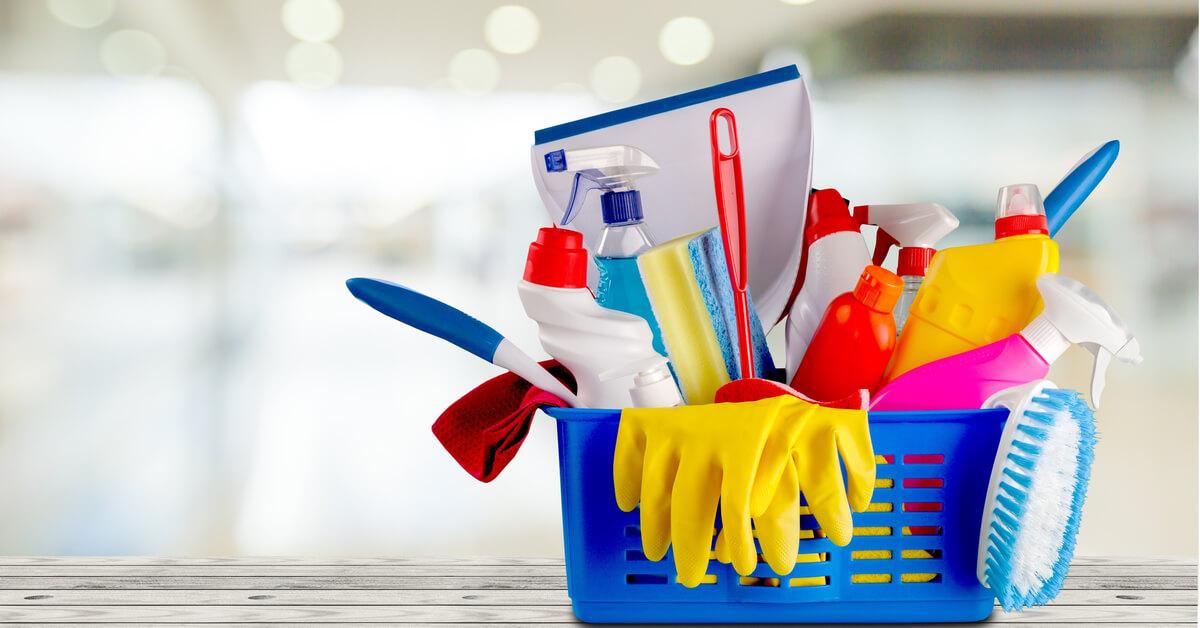
Choosing the Right Cleaning Equipment and Supplies
When launching a cleaning business, the equipment and supplies you choose can make all the difference between a mundane operation and a standout service. It’s essential to select tools that not only deliver high-quality results but also enhance efficiency and safety. Let’s explore some key considerations to help you make informed choices.
First and foremost, consider the types of cleaning services you plan to offer. Will you be focusing on residential cleaning, commercial cleaning, or perhaps specialized services like carpet cleaning or window washing? Different services require different equipment. Here are some essentials for various cleaning sectors:
- Residential Cleaning: Vacuum cleaners, mops, brooms, and all-purpose cleaners.
- Commercial Cleaning: Industrial vacuums, floor scrubbers, and heavy-duty disinfectants.
- Specialized Services: Steam cleaners, pressure washers, and specialized solutions for carpets or windows.
Next, think about the quality of the equipment. Investing in reliable, high-quality tools upfront can save you money in the long run. Durable equipment will not only last longer but will also improve your efficiency since they are typically more effective. For example, a high-quality vacuum can pick up dirt and allergens better, leading to a more thorough clean.
Don’t forget about eco-friendly supplies. Today’s clients are increasingly concerned about their environmental impact. Offering green cleaning options not only helps the planet but can also become a unique selling point for your business. Look for biodegradable cleaners, reusable cloths, and energy-efficient equipment to appeal to eco-conscious customers.
Additionally, consider the ergonomics of your tools. Cleaning can be physically demanding, and using equipment that is heavy or cumbersome can lead to fatigue and injuries. Look for lightweight options, ergonomic designs, and tools that reduce strain on your body. Remember, a happy cleaner will provide better service!
Lastly, keep an eye on your budget. It’s important to strike a balance between quality and cost. An effective strategy is to create a checklist of necessary equipment and supplies while shopping around for the best deals. You can also consider purchasing used or refurbished items to reduce initial expenses. Here’s a simple table to help you compare potential costs:
| Item | New Cost | Used Cost |
|---|---|---|
| Vacuum Cleaner | $200 | $100 |
| Floor Scrubber | $1,000 | $600 |
| Steam Cleaner | $150 | $75 |
By carefully selecting the right equipment and supplies, you position your cleaning business for success. Aim for quality, efficiency, and sustainability to create a lasting impression on your customers and stand out in a competitive market.
Setting Competitive Pricing That Attracts Clients
Finding the right price for your cleaning services is crucial to attracting clients without undervaluing your business. It’s essential to strike a balance between affordability for clients and profitability for your enterprise. Here’s how you can achieve competitive pricing that speaks to your potential customers while ensuring sustainability.
Start by conducting market research in your local area. Analyze what other cleaning services charge and what packages they offer. Make a note of:
- Average hourly rates
- Service packages
- Any promotions or discounts
Once you have this information, create a pricing structure that reflects your services. Consider a tiered pricing model to attract a wider range of clients. A simple table can help you visualize this:
| Service Type | Basic Package | Standard Package | Premium Package |
|---|---|---|---|
| Residential Cleaning | $100 | $150 | $200 |
| Office Cleaning | $120 | $180 | $250 |
| Deep Cleaning | $200 | $300 | $400 |
Highlight the differences between packages clearly, showcasing the added value of higher-tier services. This not only helps clients choose the right package for their needs but also encourages them to opt for more comprehensive services.
Don’t forget to consider seasonal promotions or limited-time offers. For example, offering a 20% discount for first-time clients or bundling services can create urgency and attract new customers. Make sure to advertise these deals on your website and social media platforms to maximize visibility.
Additionally, always be willing to reassess your prices based on feedback and market trends. If you find that your services are highly sought after, don’t hesitate to adjust your rates accordingly. Similarly, if business is slow, it may be wise to re-evaluate your pricing strategy and possibly lower your rates temporarily to attract more clients.
Lastly, remember that transparent pricing builds trust. Clearly communicate what each service includes and ensure there are no hidden fees. This transparency not only fosters trust but also enhances customer satisfaction, leading to repeat business and referrals. By implementing these strategies, you’ll create a competitive pricing structure that draws clients in while keeping your business on the path to profitability.

Marketing Your Cleaning Business Effectively
To stand out in the competitive cleaning industry, you need to market your services in ways that resonate with potential clients. Identifying your target audience is a crucial first step. Are you targeting busy professionals, families, or commercial businesses? Understanding who your ideal customer is will guide your marketing efforts more effectively.
Next, consider leveraging social media platforms. Facebook, Instagram, and LinkedIn are powerful tools for showcasing your cleaning services. Share before-and-after photos of your work, customer testimonials, and special promotions. Regularly engaging with your audience can build a sense of community and trust, which is essential for converting followers into clients.
Another effective strategy is to implement a referral program. Encourage satisfied customers to refer friends and family by offering them discounts on future services. Word-of-mouth advertising is incredibly powerful in the cleaning business, as people are more likely to trust recommendations from those they know.
Don’t overlook local SEO. Optimize your website and online listings with keywords that reflect your services and location. This will help potential clients find you easily when searching online for cleaning services in their area. Make sure to claim your Google My Business listing and keep it updated with your services, hours, and customer reviews.
Consider using targeted online advertising. Platforms like Google Ads and Facebook Ads allow you to reach specific demographics based on location, interests, and behaviors. Craft compelling ads that highlight your unique selling points, such as eco-friendly products or specialized cleaning services, to attract more leads.
Networking is another powerful marketing tool. Attend local business events, join community organizations, and connect with other businesses that may need cleaning services or can provide referrals. Building relationships can lead to valuable partnerships and increased visibility for your brand.
| Marketing Strategy | Description | Benefits |
|---|---|---|
| Social Media Engagement | Utilize platforms to showcase services. | Build community and trust. |
| Referral Program | Offer discounts for referrals. | Increase word-of-mouth marketing. |
| Local SEO | Optimize your online presence. | Enhance visibility in local searches. |
| Online Advertising | Run targeted ads on social media. | Reach specific demographics effectively. |
| Networking | Connect with local businesses. | Foster partnerships and referrals. |
Lastly, always ask for feedback from your clients. Understanding their needs and preferences not only improves your services but also helps you tailor your marketing strategies. Use testimonials and reviews as promotional material to build credibility and attract new customers. By making your clients feel valued, you’ll create loyal customers who are more likely to return and recommend your services to others.

Building a Strong Brand Identity and Online Presence
To thrive in the competitive cleaning industry, establishing a strong brand identity is essential. Your brand is more than just your logo; it reflects your business’s values, mission, and personality. Start by defining what sets your cleaning business apart from the others. Are you eco-friendly, focused on commercial cleaning, or specializing in residential services? This unique selling proposition (USP) will help you carve out your niche.
Next, create a memorable logo and color scheme. These elements should be consistent across all your marketing materials, from your business cards to your website. Consistency builds recognition, which is crucial for brand recall. A professional logo can convey trust and reliability, qualities that clients look for in a cleaning service.
Don’t underestimate the power of social media. Platforms like Instagram, Facebook, and LinkedIn offer a fantastic way to connect with potential customers. Share before-and-after photos of cleaning projects, customer testimonials, and tips for maintaining a clean home. Engaging content will help you build a community around your brand and attract followers who may become loyal customers.
Another effective strategy is to develop an SEO-optimized website. Your website should not only showcase your services but also include informative blog posts that address common cleaning challenges. Use keywords relevant to your business to improve your visibility on search engines. This approach will draw traffic to your site and position you as an authority in your field.
Consider creating a customer loyalty program. Rewarding repeat customers with discounts or special offers can encourage them to keep coming back. This not only boosts your customer retention but also fosters positive word-of-mouth referrals, which are invaluable for a service-based business.
Below is a simple table that outlines some key elements to incorporate into your brand strategy:
| Element | Description |
|---|---|
| Logo | A professional design that reflects your brand’s identity. |
| Color Scheme | Consistent colors that resonate with your target audience. |
| Social Media | Active presence that engages and builds a community. |
| Website | SEO-optimized site showcasing your services and expertise. |
| Loyalty Program | Rewards for repeat customers to encourage retention. |
Lastly, seek feedback from your clients. Encourage them to leave reviews on platforms like Google and Yelp. Positive reviews enhance your credibility and can significantly influence potential customers. Address any negative feedback gracefully, showing that you value customer input and are committed to improving your service.

Utilizing Social Media to Connect with Potential Customers
In today’s digital age, social media has emerged as a powerful tool for businesses, including cleaning services, to reach potential customers. Establishing a presence on platforms like Facebook, Instagram, and LinkedIn can significantly enhance your visibility and credibility in the market. By leveraging these platforms, you can not only showcase your services but also engage with your audience in a meaningful way.
Creating High-Quality Content
To capture the attention of potential clients, focus on creating high-quality, engaging content that resonates with your target audience. Here are some content ideas:
- Share before-and-after cleaning photos to demonstrate your expertise.
- Post cleaning tips and tricks that people can use at home.
- Create videos showcasing your cleaning process or testimonials from satisfied clients.
- Run polls or surveys to engage your audience and understand their needs.
Utilizing Targeted Advertising
Social media platforms offer tailored advertising options that can help you reach your specific audience. Consider the following strategies:
- Utilize Facebook Ads to target local homeowners or businesses.
- Invest in Instagram promotions to showcase visually appealing content.
- Leverage LinkedIn to connect with other businesses that may require cleaning services.
Engaging with Your Community
Social media is not just about posting content; it’s also about interaction. Make it a point to respond to comments and messages promptly. Engaging with your audience builds trust and encourages word-of-mouth referrals. You can also participate in local community groups where potential clients might be seeking recommendations for cleaning services.
Building a Referral Program
Encourage satisfied customers to share their positive experiences on social media. You can incentivize referrals by offering discounts or free services for each new customer they bring in. A simple table could outline your referral program, such as:
| Referral Actions | Reward |
|---|---|
| Refer 1 Friend | 10% Off Next Service |
| Refer 3 Friends | 25% Off Next Service |
| Refer 5 Friends | Free Cleaning Session |
Tracking Performance
Lastly, it’s crucial to track the performance of your social media campaigns. Analyze metrics such as engagement rates, follower growth, and the number of inquiries received through social media. Use this data to refine your strategy and focus your efforts on the platforms and content that yield the best results.
By effectively utilizing social media, you can create a strong connection with potential customers, elevate your cleaning business, and pave the way for rapid profitability. Embrace these digital tools and watch your customer base grow!

Establishing Trust Through Quality Service and Customer Reviews
Building a successful cleaning business isn’t just about having the right tools and staff; it’s about establishing trust with your clients. In an industry where reliability and quality are paramount, customers will choose a service that not only meets their expectations but exceeds them. One of the most effective ways to foster this trust is through exemplary service and authentic customer reviews.
Quality service should be the cornerstone of your operations. This means not only delivering a clean space but also ensuring that your clients feel valued and respected. Here’s how you can focus on quality:
- Training Your Team: Invest in thorough training for your employees. A well-trained team will ensure consistency and high standards in service, which customers will appreciate.
- Utilizing Eco-Friendly Products: Many clients are now more conscious about their environmental impact. Offering green cleaning options can set you apart from the competition.
- Reliable Scheduling: Make sure your services are punctual. Reliability builds trust and encourages repeat business.
Once you’ve established a reputation for quality, it’s essential to showcase what your satisfied customers are saying. Customer reviews act as social proof, increasing the confidence new clients have in your business. Here’s how to effectively leverage reviews:
- Encourage Feedback: After each service, ask your clients for their thoughts. Providing a simple form or an easy way to leave feedback can drive responses.
- Showcase Testimonials: Highlight positive reviews on your website and social media. A dedicated section for customer feedback can draw in new clients.
- Respond to Reviews: Engage with both positive and negative reviews. Thanking customers for positive feedback and addressing concerns in negative reviews shows that you care about your clients’ opinions.
Consider creating a visual representation of your customer satisfaction, such as a table summarizing your feedback:
| Client Name | Rating | Review Summary |
|---|---|---|
| Jane Doe | ⭐⭐⭐⭐⭐ | Exceptional service and attention to detail! |
| John Smith | ⭐⭐⭐⭐ | Very professional and reliable. |
| Emily Johnson | ⭐⭐⭐⭐⭐ | Loved the eco-friendly products! |
Building trust takes time, but with consistent quality and a strong emphasis on customer feedback, your cleaning business can thrive. The goal is to create a loyal customer base that not only returns for your services but also recommends you to others. Trust is the bedrock of customer relationships, and when your clients trust you, they will be more inclined to choose you time and again.
Ultimately, is not just a strategy; it’s a pathway to long-term success in your cleaning business. Make these principles a priority, and watch your clientele grow and your profits soar.

Streamlining Operations for Maximum Efficiency
When you’re starting a cleaning business, optimizing your operations is key to boosting efficiency and profitability. Here are some practical strategies that can help you streamline processes and maximize your output:
- Invest in Quality Equipment: High-quality cleaning tools and products can significantly reduce the time spent on each job. Invest in equipment that is both effective and durable, ensuring that you won’t have to replace them frequently.
- Create a Standardized Cleaning Checklist: Develop clear cleaning checklists for different types of jobs. This will not only ensure consistency in quality but also help your team work more efficiently, reducing the time taken for each task.
- Implement Scheduling Software: Utilize scheduling software to manage appointments and staff assignments. This can help you optimize routes, minimize travel time, and manage your workload more effectively.
- Streamline Communication: Establish clear communication channels. Use group messaging apps for real-time updates, ensuring that your team is always on the same page and can quickly resolve any issues that arise.
Another area to consider is training your staff. Effective training can significantly impact the efficiency of your cleaning operations. By providing your team with the knowledge and skills they need, you empower them to perform their tasks with confidence and speed.
Consider the following points when training your staff:
- Regular Workshops: Host periodic training sessions to keep your team updated on the latest cleaning techniques and product usage.
- Performance Metrics: Establish key performance indicators (KPIs) to track employee efficiency and address any areas for improvement.
Additionally, creating a reliable supply chain is essential. Ensure you have consistent access to cleaning supplies and equipment. You might even consider establishing relationships with local suppliers to negotiate better rates and faster delivery times.
To visualize the importance of operational efficiency, consider the following table that compares the impact of optimized vs. unoptimized operations:
| Aspect | Optimized Operations | Unoptimized Operations |
|---|---|---|
| Time Taken per Job | 30 minutes | 60 minutes |
| Customer Satisfaction | 95% | 75% |
| Repeat Business Rate | 80% | 40% |
By focusing on these operational strategies, your cleaning business can not only operate smoothly but also set a foundation for long-term growth and success in a competitive market. Remember, every small improvement in efficiency can lead to significant gains in profitability!
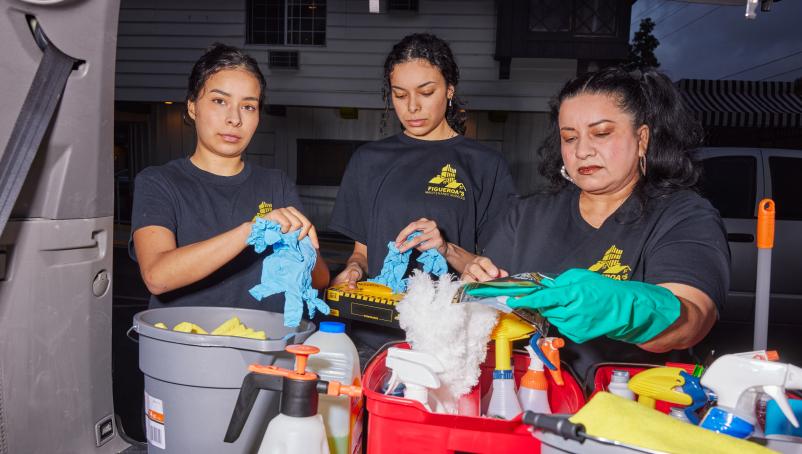
Exploring Expansion Opportunities for Increased Profit
As you embark on your journey in the cleaning business, identifying and exploring avenues for growth can be the key to maximizing your profits. Here are some strategic options to consider:
- Franchise Model: Once you’ve established a successful cleaning business, consider franchising your brand. This model allows you to expand your reach with minimal capital while maintaining brand consistency.
- Specialized Services: Diversify your offerings by adding specialized cleaning services such as carpet cleaning, window washing, or post-construction cleanups. Tailor your services to meet the needs of your local market.
- Commercial Contracts: Target businesses for long-term contracts. Commercial clients often require regular cleaning services, providing you with a steady income stream.
To further enhance your profitability, consider leveraging technology. Implementing scheduling and invoicing software can streamline your operations, freeing up valuable time to focus on business development. A user-friendly online booking system can also attract more clients.
Another effective strategy is to build partnerships with local businesses. Establish relationships with real estate agents or property managers who can refer your services to their clients. Offering them a referral commission can incentivize them to promote your cleaning services actively.
Don’t underestimate the power of customer retention. Focus on delivering exceptional service that encourages repeat business. Consider implementing a loyalty program that rewards long-term clients with discounts or free services. This can turn a one-time customer into a lifelong client.
As your business grows, it’s essential to keep track of key performance indicators (KPIs) to measure your success and identify areas for improvement. Here’s a simple table you can use to track some crucial metrics:
| Metric | Target | Current |
|---|---|---|
| Monthly Revenue | $10,000 | $7,500 |
| Client Retention Rate | 80% | 75% |
| New Customers/Month | 20 | 15 |
always be on the lookout for feedback from your clients. This can provide valuable insights on how to adjust your services to better meet their needs. Regularly solicit reviews and testimonials; positive feedback can enhance your credibility and attract new clients.
Learning from Challenges: Adapting and Growing Your Business
Every entrepreneur faces challenges, and the cleaning business is no exception. However, it’s how you respond to these challenges that can make all the difference in your journey to success. When you encounter obstacles, view them as opportunities for growth rather than setbacks. Here are some ways to transform challenges into stepping stones for your cleaning business:
- Evaluate and Adapt: Regularly assess your business strategies and operations. If a specific approach isn’t yielding results, don’t hesitate to pivot. For instance, if traditional marketing isn’t attracting clients, explore digital marketing avenues like social media or local SEO.
- Seek Feedback: Don’t shy away from asking clients for their opinions on your services. Use this feedback constructively to improve your offerings. Happy clients will spread the word, giving your business a boost.
- Invest in Training: The cleaning industry is constantly evolving. Invest in training for yourself and your employees to stay updated on the best practices and innovative cleaning techniques. Not only does this improve service quality, but it also positions your business as a leader in the industry.
- Network with Others: Connect with fellow business owners and industry professionals. They can offer valuable insights, share their own experiences, and provide support when you face hurdles.
When challenges arise, consider creating a strategic plan that includes a risk assessment. This should outline potential problems and the methods you will use to address them. It acts as a roadmap, guiding you through tough times while keeping your business on track. Below is a simple table to help you identify potential risks and corresponding solutions:
| Potential Risk | Possible Solution |
|---|---|
| High turnover of cleaning staff | Implement a robust training and employee engagement program |
| Negative online reviews | Encourage satisfied clients to leave positive reviews and respond professionally to criticism |
| Seasonal fluctuations in demand | Diversify services (e.g., offer deep cleaning, window washing) to attract year-round clients |
| Supply chain issues | Establish relationships with multiple suppliers to ensure consistent product availability |
Moreover, embracing technology can streamline your operations and enhance customer satisfaction. Consider using scheduling software to manage appointments efficiently or a customer relationship management (CRM) system to maintain client details and follow up on service feedback. These tools can save you time, reduce administrative burdens, and help you focus on scaling your business.
Lastly, remember that resilience is key. Challenges will come and go, but maintaining a positive mindset and a commitment to your vision will propel your business forward. Every successful cleaning business owner has faced adversity; what sets them apart is their ability to adapt and grow stronger in the process.

Celebrating Milestones and Planning for the Future
As you embark on your journey in the cleaning business, it’s crucial to take a moment to acknowledge your achievements thus far. Whether it’s landing your first client, receiving positive feedback, or hitting a revenue target, celebrating these milestones not only boosts your confidence but also reinforces your commitment to the path you’ve chosen. Each small victory paves the way for larger successes, so don’t hesitate to share these moments with your team, your clients, and your community.
Once you’ve taken the time to celebrate, it’s equally important to pivot your focus towards planning for the future. Setting clear, actionable goals will help you maintain momentum and direction. Consider the following strategies:
- Set SMART Goals: Ensure your objectives are Specific, Measurable, Achievable, Relevant, and Time-bound.
- Analyze Your Market: Stay informed about industry trends and customer preferences to keep your services relevant.
- Invest in Technology: Utilize cleaning business management software to streamline operations and improve efficiency.
- Expand Your Services: Consider offering specialized cleaning services, such as eco-friendly options or post-construction clean-ups.
Creating a roadmap for the next year can help visualize your growth and identify potential opportunities. A simple table can serve as a great tool to outline your goals:
| Goal | Deadline | Action Steps |
|---|---|---|
| Acquire 10 new clients | Q2 2024 | Launch targeted marketing campaign |
| Increase revenue by 25% | Q4 2024 | Upsell existing clients |
| Implement eco-friendly products | Q3 2024 | Research and source suppliers |
Don’t forget the importance of networking within the cleaning industry. Joining professional organizations and local business groups can open doors to new partnerships and clients. Regularly attending events and workshops not only enhances your knowledge but also allows you to showcase your business’s unique offerings.
as you plan for the future, remember that adaptability is key. The cleaning industry is continuously evolving, and staying agile will allow you to respond effectively to changes in demand and customer expectations. Regularly revisit your business plan, adjusting as necessary to stay ahead of the curve.
Frequently Asked Questions (FAQ)
Q&A: How to Start a Cleaning Business & Make It Profitable Fast
Q: What’s the first step I should take to start a cleaning business?
A: Great question! The first step is to research your local market. Check out your competition, identify your target customers, and figure out what services are in demand. This will help you carve out a niche for your business and understand how to position yourself effectively.
Q: Do I need special certifications to start a cleaning business?
A: While certifications aren’t mandatory, they can give you an edge and build trust with potential clients. Consider getting certified in specialized cleaning techniques or industry standards, especially if you plan to offer services like carpet cleaning or commercial cleaning.
Q: How much money do I need to get started?
A: You can start a cleaning business with relatively low overhead. Depending on your services, you might need between $500 to $2,000 for supplies, equipment, and marketing. The key is to keep your initial costs low and reinvest your profits into the business as it grows.
Q: What services should I offer to attract customers quickly?
A: Focus on services that are in high demand, such as residential cleaning, office cleaning, or specialized services like deep cleaning and move-in/move-out cleaning. Offering bundled services can also appeal to customers looking for convenience.
Q: How can I effectively market my cleaning business?
A: Utilize a mix of online and offline marketing strategies. Create a professional website, leverage social media platforms, and consider local advertising, like flyers or business cards. Don’t underestimate the power of word-of-mouth referrals—ask satisfied customers to spread the word!
Q: What’s the best way to set competitive pricing?
A: Research what other cleaning businesses in your area charge and set your prices slightly lower as a starting point. As you build your reputation and client base, you can gradually adjust your pricing. Don’t forget to ensure your prices cover your costs and allow for profit!
Q: How do I keep my customers coming back?
A: Providing exceptional service is key! Always be punctual, communicate effectively, and go the extra mile to meet your customers’ needs. Consider implementing a loyalty program or offering discounts for repeat customers to encourage long-term relationships.
Q: What’s one tip for scaling my cleaning business quickly?
A: Focus on building a strong online presence. Create social media profiles, engage with your community, and ask happy clients for reviews. Running targeted ads can also help you reach a larger audience quickly. The more visibility you have, the faster you can grow!
Q: Is it worth it to hire employees right away?
A: Hiring employees can help you scale faster, but it also adds complexity and responsibility. If you’re just starting out, consider subcontracting or working solo until you establish a steady stream of clients. Once you have a solid foundation, you can hire additional staff to expand your services.
Q: How can I ensure my cleaning business stands out from the competition?
A: Differentiate yourself by offering unique services or exceptional customer service. Think about what sets you apart—maybe you use eco-friendly products, provide flexible scheduling, or offer a satisfaction guarantee. Highlight these in your marketing to attract clients who value what you offer!
Starting a cleaning business can be a lucrative venture if you approach it with the right mindset and strategies. With dedication and hard work, you can build a profitable business in no time. Happy cleaning!
Final Thoughts
As we wrap up our journey into the world of starting a cleaning business, remember that success doesn’t happen overnight. But with the right strategies and a bit of determination, you can turn your cleaning venture into a profitable enterprise faster than you might think!
Take the insights and tips we’ve discussed and tailor them to fit your unique vision. Whether you’re mopping floors, dusting shelves, or organizing spaces, remember that each job is an opportunity to build your reputation and grow your clientele.
So, roll up those sleeves and dive in! With a sprinkle of passion and a dash of persistence, you’ll not only clean houses but also pave the way to financial freedom. Your journey starts today—let’s make it shine! If you have any questions or need further guidance along the way, don’t hesitate to reach out. Here’s to your success in the cleaning business! 🌟



